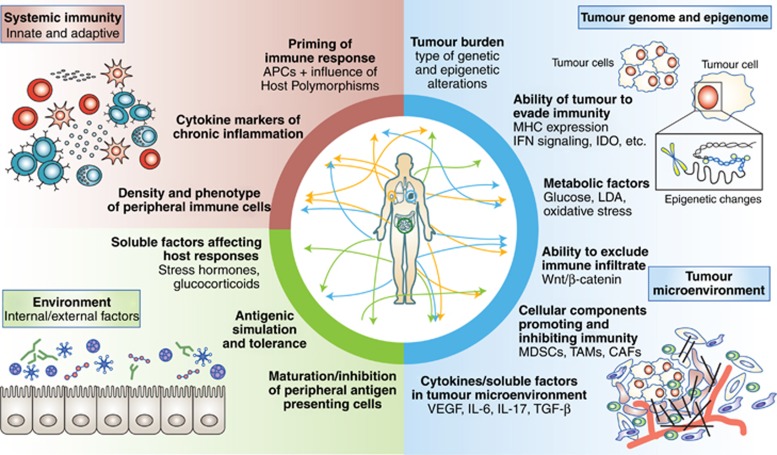Figure 2.
The core pillars and thematic hallmarks of anti-tumour immunity governing response to immune checkpoint blockade. Extensive research has identified numerous tumour-centric domains (shown in blue), including both static (existing genomic aberrations) and dynamic (epigenomic, metabolic and microenvironmental) features, which moderate anti-tumour immune responses and have impact on the efficacy of immune checkpoint blockade. Relevant metrics of overall immunocompetence, and systemic factors regulating the balance between immunotolerant and inflammatory states (e.g., innate and adaptive cell abundance and composition, immune cell circulation/sequestration, cytokine levels; shown in brown) are gradually being quantified. Environmental factors previously not implicated in directly modulating the anti-tumour response are now recognised to impact on immune checkpoint response (shown in green); principal among these sources of immunomodulation is the gut microbiota, while environmental stresses (e.g., thermal stress) and other tumour-remote immune-pathogen interactions may produce humoral factors that impact upon the specific anti-tumour response.

